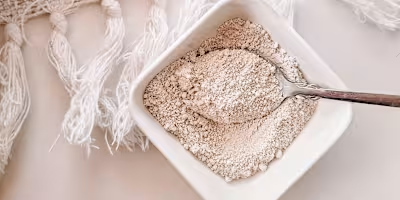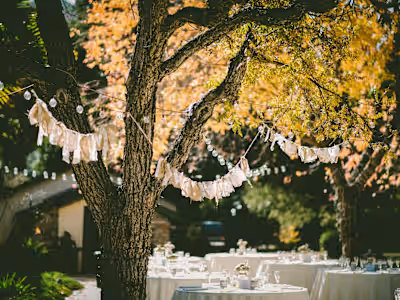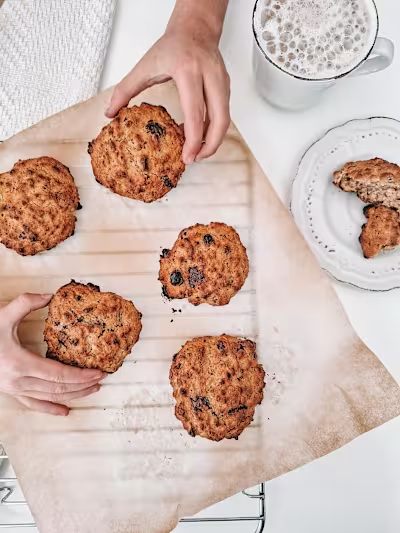What is Lavender Essential Oil?
What is Lavender Essential Oil?
Essential oils have been around for centuries and are widely known for their cosmetic and medicinal uses. Lavender essential oil is one of the most common and most used essential oil in the world today, and for good reason. What is lavender essential oil you may ask, let’s take a deeper look into the world of oils and uncover the benefits and uses of this gift from nature.
What is an Essential Oil?
If you have ever enjoyed the scent of lavender then you have already experienced the aromatic quality of an essential oil. These aromatic compounds are naturally occurring in seeds, flowers, leaves, bark and other parts of a plant. The essential oils in a specific plant gives it it’s smell, protects it and plays an important role in pollination.
The volatile aromatic compounds that are found in plants are made up of small organic molecules that have the ability to change very quickly. They can change from a solid or liquid state, to a gas state at room temperature. We experience this when we open a bottle of essential oil and can smell it from a distance. The type of aromatic compounds found in the essential oil determines the oil’s aroma as well as the benefits it offers to you.
A Closer Look at Lavender Essential Oil
Lavender essential oil has been used for many centuries and is cherished for it’s distinct aroma and plethora of benefits. In ancient days the Romans and Egyptians used to use Lavender for cooking, bathing, relaxation and as a perfume. In fact, Egyptians used lavender oil for mummification and in 1923 when King Tut’s tomb was opened, there was still a faint smell of lavender. It’s scent can be described as light, powdery and floral.
Lavender essential oil comes from the Lavendula plant. There are many varieties of this plant, the most commonly used being Lavendula Angustifolia, known as English lavender. Lavender essential oil is steam distilled from the flower or leaf of the plant.
The main chemical components in lavender are Linalool, Linalyl acetate and Ocimene which give it it’s calming aroma and benefits.
The Benefits and Uses of Lavender Essential Oil
Lavender oil is widely loved because of its calming, sedative, antimicrobial, antioxidant and antidepressant properties. Let’s have a closer look at the benefits and uses of this beautiful oil.
Powerful Antioxidant Properties
In 2013 there was a study published in Phytomedicine that found that lavender essential oil increased the activity of glutathione, catalase and superoxide dismutase, which are powerful antioxidants in the body that prevent free radical damage. More recent studies have shown similar results concluding that lavender has antioxidant activity which helps to protect us against and even reverse oxidative stress. This is stress that our body undergoes through free radicals, toxins and chemicals that are so present in our world today. These all cause a variety of illness and damage to our immune system and our body.
Natural Diabetic Treatment
In 2014 a group of scientists in Tunisia did a study to test the effects that lavender oil has on blood sugar to see if it could possibly reverse the effects of diabetes. This was a 15 day animal study that revealed that lavender oil protected the body from 6 major diabetic symptoms including increased blood glucose levels which is the poster page symptom of diabetes. Although more research needs to be done, there is absolutely no harm in using this 100% natural treatment and see the results for yourself.
To use lavender oil of diabetes apply it topically to your neck and chest diluted in a carrier oil, diffuse it in your home or ask your naturopath about supplementing with it for the full health benefits.
Improves Mood and Reduces Stress
This is one of the most common known benefits of lavender oil. Traditionally lavender has always been used to protect against neurological damage and treat issues such as migraines, stress, anxiety and depression. There are several human studies that have been conducted in recent years that prove the use of lavender essential oil is effective in treating these conditions, even in children.
A published study in 2012 showed that the use of lavender essential oil by high risk postnatal women had reduced depression and anxiety simply by diffusing lavender in their homes.
To use lavender oil to reduce stress simply diffuse it in your home, especially at bedtime or wind down time or apply topically behind the ears for the same benefits. If you are looking for more ways to reduce your anxiety see our previous article on herbs for anxiety and stress: https://betanaturalhealth.com/best-herbs-for-anxiety-and-stress/
Supports Brain Function
When we speak about neurological protection the benefits of lavender oil are huge. Not only does it protect against the more emotional side of the brain but studies have shown that it can even protect you from and treat Alzheimer’s disease.
In 2012 the Swiss Journals Molecules printed a study that showed that the use of lavender oil is a viable treatment for neurological dysfunctions such as a stroke. Researchers believe that the antioxidant properties in lavender oil are neuroprotective.
To support the entire nervous system, diffuse lavender oil in your home or inhale it directly from the bottle. It can also be applied to the back of the neck and temples in a carrier oil.
Healing
Lavender oil has really good healing properties and has been found to heal cuts and burns because of its antimicrobial properties. Over a 100 studies have proven this time and time again. It can also be used to treat various bacterial and fungal skin infections, such as athlete's foot. Lavender has a soothing calming effect not only on the body but on the skin too. If you are experiencing an irritating eczema or rash, lavender oil will calm the inflammation and provide healing.
For burn relief or to heal cuts and wounds, mix 3-5 drops of lavender oil with ½ a teaspoon of coconut oil and apply with clean fingers or cotton to the affected area. This can be repeated several times a day until the area has healed.
Insect Repellent
Lavender has a scent that repels mosquitos and other insects. Common bug repellents can contain harmful chemicals. You can make your own insect repellent by mixing lavender oil with other essential oils such as tea tree and lemon, mixed with some hitch hazel in a spray bottle. This works well for both humans and animals and will keep those pesky fleas away too!
The amazing thing about lavender oil is that it not only repels insects but it can help insect bites too. If you are going camping or on an outdoor family adventure, be sure to have your lavender essential oil packed for the trip!
Other Uses Around the Home
Use lavender oil as a natural perfume. You can apply it straight to your skin or add to a little carrier oil and apply to your pulse points and on your neck. You can rub a few drops of oil in your hands and run through your hair for a beautiful hair perfume, plus it promotes healthy hair growth and shine.
Add lavender oil to your shampoo and lotions. Lavender is amazing for your skin and hair, repels bugs and keeps your hair and skin protected from free radicals. Say hello to that beautiful youthful glow.
Add a few drops of lavender oil to a spray bottle and fill with pure witch hazel to make your own room freshener. This will keep your home smelling fresh and clean without the worry of toxic chemicals filling the air.
Many people like to add that hint of lavender to their baked goods. You can add 1 or 2 drops of lavender oil to jams, cookies and cakes to bring out that slight floral note. When using oils for cooking and consuming, always make sure you are using 100% pure organic essential oil.
What to Look for When Buying Lavender Essential Oil
When buying any essential oil, always buy from a reputable brand that is certified pure and organic and that is of a therapeutic grade. Steer clear of oils that have additives, fragrance or essence in their ingredients. The ingredient should be pure, organic and undiluted. Especially if you are intending on taking it internally.
Precautions and Potential Side Effects
As with food, some people can have allergies to even the purest essential oils. If you are unsure, always do a small patch test on your arm and allow it to be there for 24 hours before using it. If you see no side effects or allergies appear then it is safe to use. Although allergies are rare, always use any essential oils with caution until you feel comfortable with them.
If you are using any medication for sleep related disorders or depression, the use of lavender essential oil may not be recommended as it increases the effectiveness of the medication. Always speak to your doctor if you are unsure.
Lavender oil is generally safe in pregnant women but because of its relaxing effects it is not recommended in the third trimester.
There have been no negative studies showing the effects of the topical or aromatic use of lavender oil. When using it topically it is always safer to use it with a carrier oil, especially if you have sensitive skin or are using it on children. Some people apply it without carrier oil, but do so with caution and do a patch test.
A 2013 evidence-based article highlighted that lavender can be ingested at a large dose of 80mg to 160mg without harmful effects, except for minor gastrointestinal symptoms in some. Keep internal use to a minimum to avoid gastrointestinal irritation and be careful if you have a sensitive digestive system.
Final Calming Thoughts
Lavender oil has proven to be an oil that every household should have. It is versatile and safe for the whole family, including your furry friends. You should also pop an extra bottle into your first aid kit for at home and for travel. It’s no wonder the Egyptians and Romans prized this oil so highly.
Like this project
Posted Oct 18, 2024
Informative article done for a client on lavender essential oil and the uses and benefits of it. Client added their own images, all written content done by me








